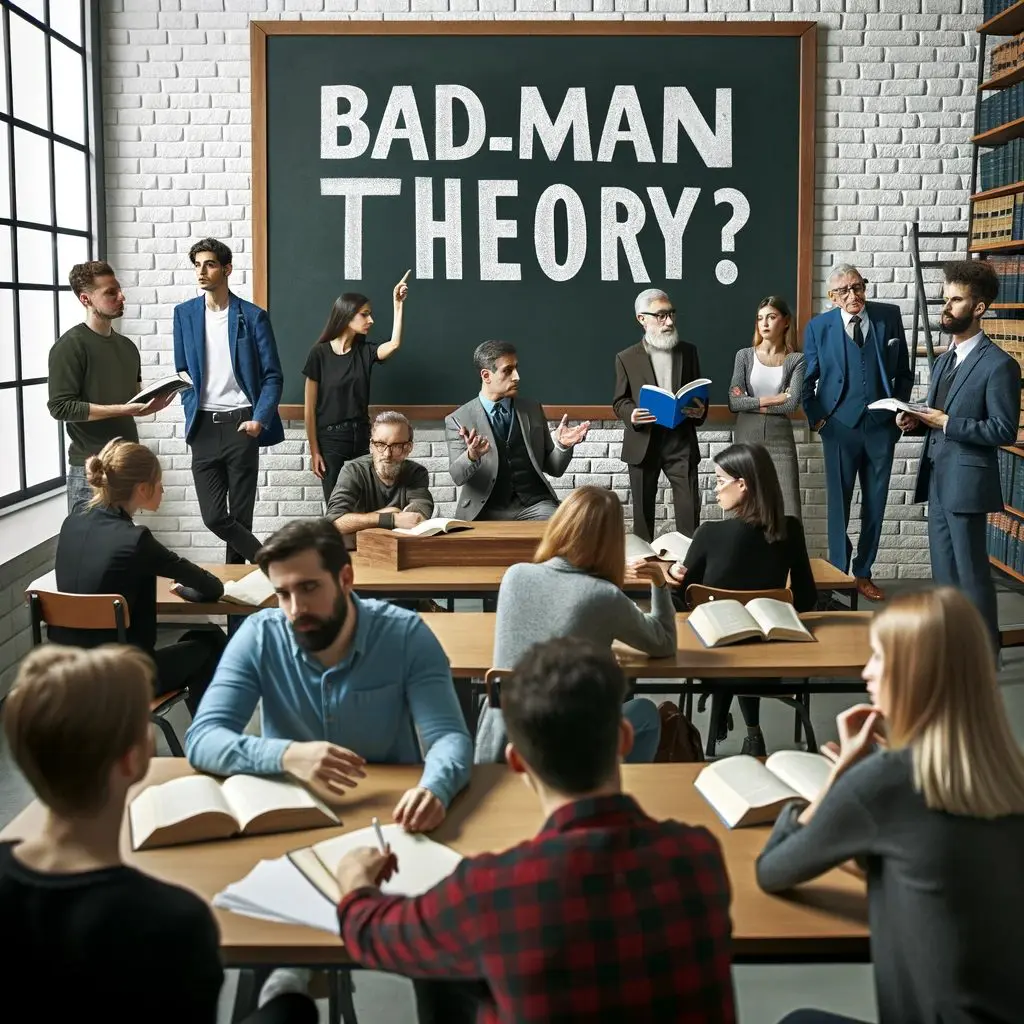In the complex landscape of jurisprudence, the Bad-Man Theory, introduced by Oliver Wendell Holmes, stands as a significant paradigm. This theory proposes a unique perspective on understanding the law, not from the standpoint of ethical or moral considerations, but through the eyes of a person who is indifferent to these aspects. The theory, also known as the prediction theory, suggests that the most accurate way to decipher the law is by predicting how it affects those who are solely focused on avoiding legal repercussions.
Understanding the Bad-Man Theory
The Bad-Man Theory posits that the best test of legal boundaries is through the lens of a ‘bad man’ – someone who meticulously calculates the potential consequences of their actions under the law. This approach shifts the focus from what the law ought to be to what the law practically enforces. Holmes argued that by understanding the law from this perspective, one can precisely understand its limits and applications.
Implications in Legal Realism
This theory plays a pivotal role in the development of legal realism, a movement that emphasizes the practical application of law over theoretical interpretations. Legal realists argue that law should be understood based on how it is applied in the real world, rather than solely on doctrinal principles. The Bad-Man Theory supports this view by focusing on the law’s practical effects rather than its moral or ethical implications.
Critiques and Counterarguments
Despite its practical insights, the Bad-Man Theory faces critiques for oversimplifying legal understanding and overlooking the moral and ethical dimensions of law. Critics argue that while the theory provides clarity on the law’s enforcement, it fails to address the complexities of legal interpretation that involve moral judgments and ethical considerations.
Case Studies and Applications
Exploring case studies where the Bad-Man Theory’s principles are applied offers practical insights. For instance, in corporate law, the theory can help in understanding compliance strategies from the viewpoint of those who might attempt to circumvent regulations. Similarly, in criminal law, the theory provides a framework for anticipating criminal behavior based on legal penalties.
Historical Context of the Bad-Man Theory
The Bad-Man Theory, conceptualized by Oliver Wendell Holmes in the late 19th century, marked a significant shift in legal thinking. Holmes, in his famous essay “The Path of the Law,” introduced this theory as a way to understand the law from a purely pragmatic standpoint. He argued that the law should be viewed not based on its moral or ethical intentions but on its practical effects. This perspective was revolutionary, as it challenged the traditional views of law that were grounded in moral philosophy.
Influence on Modern Legal Education
Holmes’ Bad-Man Theory has profoundly influenced modern legal education, particularly in how law students are taught to think about legal issues. It has encouraged a more critical and practical approach to legal analysis, focusing on the real-world implications of legal decisions. Law schools have integrated this theory into their curriculum, teaching students to consider how laws are applied in practice and how individuals, particularly those inclined to skirt the law, might interpret them.
Comparisons with Other Legal Theories
When compared to other legal theories, the Bad-Man Theory stands out for its stark pragmatism. Unlike natural law theories, which emphasize moral principles as the basis of law, or positivism, which focuses on the law as it is written, the Bad-Man Theory centers on the law’s practical application. It complements legal realism, a school of thought that, like the Bad-Man Theory, emphasizes how law operates in real-life situations.
Relevance in Contemporary Legal Debates
In contemporary legal debates, the Bad-Man Theory remains relevant, particularly in discussions about legal compliance, enforcement, and the behavior of individuals within the legal system. It provides a framework for understanding and predicting behaviors in various legal contexts, from corporate compliance to criminal behavior. The theory is also instrumental in shaping legal strategies, as it encourages considering the practical consequences of legal actions and decisions.
Conclusion
The Bad-Man Theory, with its focus on the pragmatic application of law, offers a unique perspective that is increasingly relevant in today’s complex legal environment. It challenges traditional legal thinking and continues to influence both legal education and practice. As legal systems evolve, the insights from the Bad-Man Theory remain crucial for understanding the law’s real-world impacts.
Disclosure: Generative AI Created Article
















